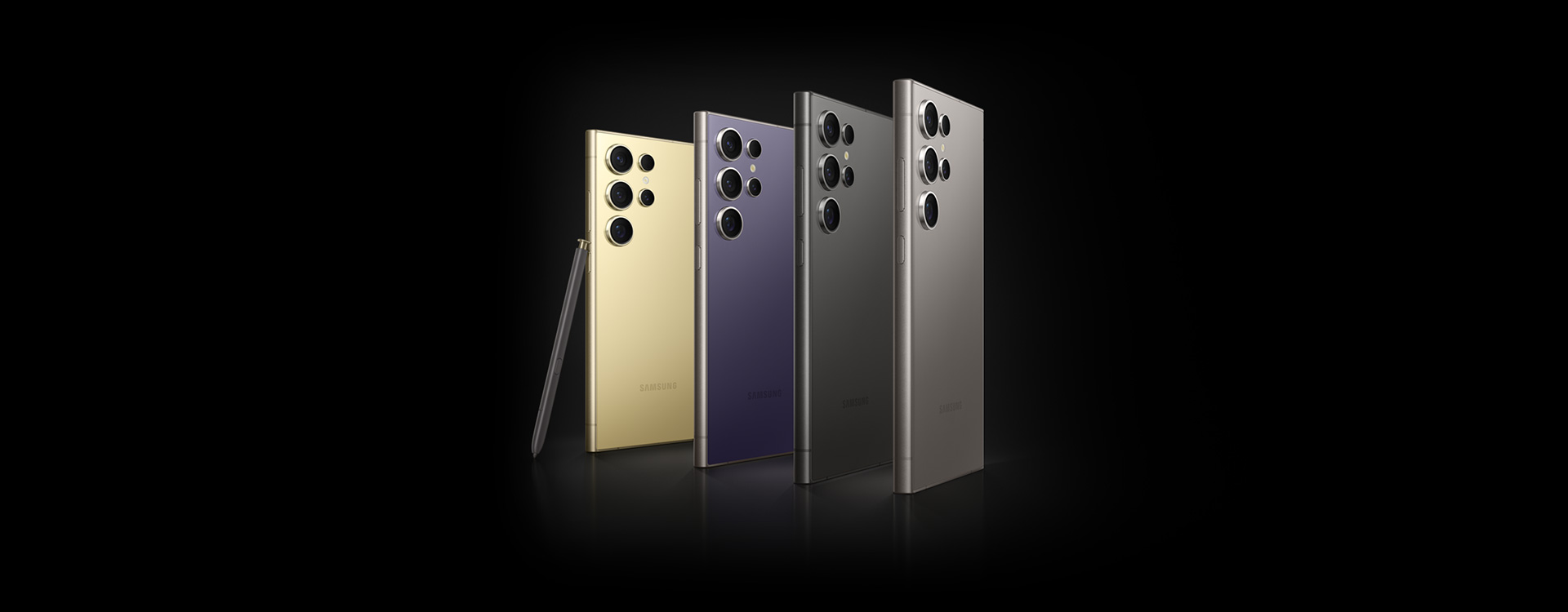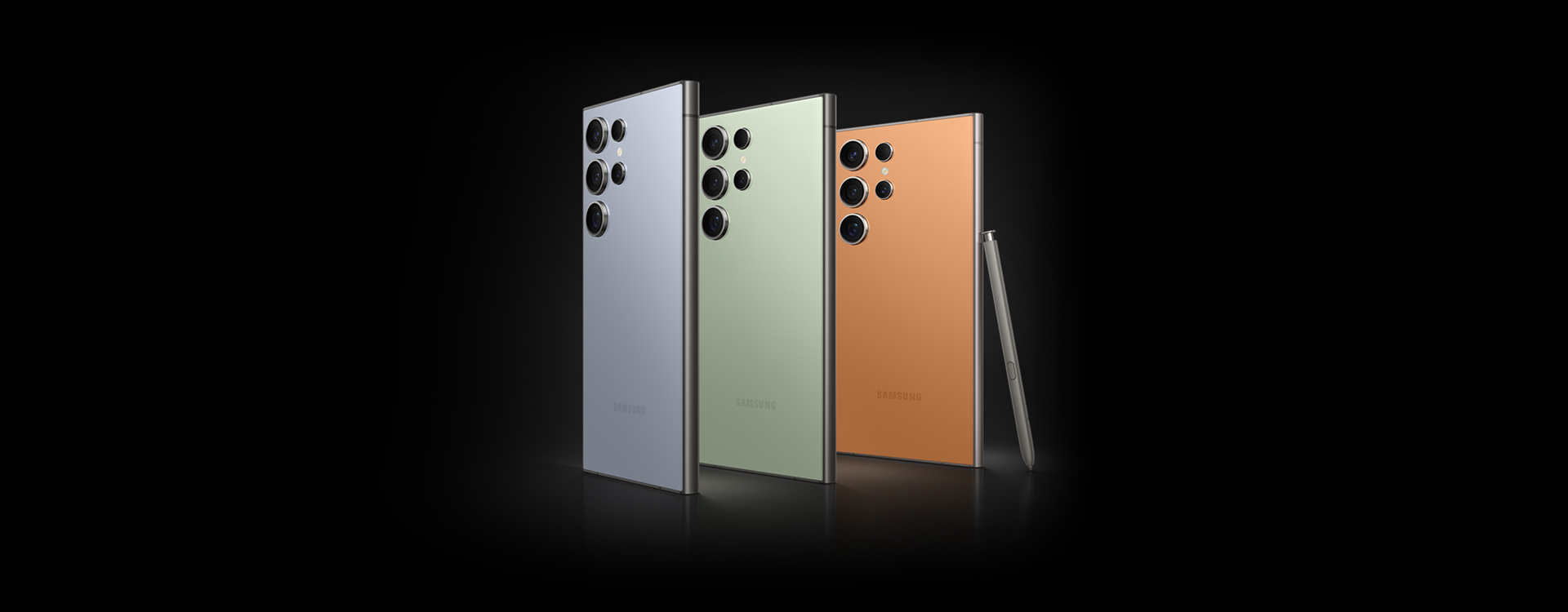Samsung announced its flagship Galaxy S24 series at its annual bi-annual Unpacked event on January 17th. Headlining the keynote was the Galaxy S24 Ultra, which boasts several impressive features and improvements over its predecessor, the Galaxy S23 Ultra.
If you’re looking to purchase the new flagship, you’ll want to read on to find out the key differences between the two devices.
Display and design
Both the Galaxy S24 Ultra and the Galaxy S23 Ultra have a 6.8-inch Dynamic AMOLED 2X display with Quad HD+ resolutions and a 120Hz adaptive screen refresh rate. However, the S24 Ultra has a higher peak brightness of 2,600nits, compared to the S23 Ultra’s 1,225 nits.
Both displays offer HDR10+ support, though the S24 Ultra’s display is more durable with a new ‘Corning Gorilla Armor‘ for protection, which Samsung says is a “state-of-the-art material” and Corning’s “toughest Gorilla Glass yet.” In comparison, the S23 Ultra features a Corning Gorilla Glass Victus 2, which is supposedly less durable than the new Armor technology.
Design-wise, the two phones look almost identical, featuring the same rectangular design, although the new S24 Ultra’s edges appear to be more angular, with less of a curve on the display. The new phone is also slightly smaller in dimensions and a meagre 1g lighter than its predecessor.
The S24 Ultra is slightly thinner than the S23 Ultra, measuring in at 8.6mm in thickness, while the S23 Ultra is 8.9mm thick.
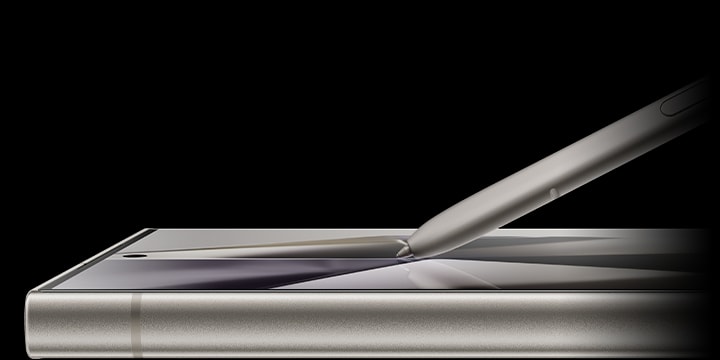 Both phones have an IP68 rating for dust and water resistance, and support the S Pen stylus.
Both phones have an IP68 rating for dust and water resistance, and support the S Pen stylus.
Dynamic LTPO AMOLED 2X, 120Hz, HDR10+, 2600 nits (peak)
6.8-inch Curved Dynamic AMOLED, 1,440 x 3,200 pixels, 20:9 aspect ratio, 120Hz display (variable 1-120Hz) HDR10+, 240Hz Touch Sampling in Games
Qualcomm Snapdragon 8 Gen 3
Qualcomm Snapdragon 8 Gen 2
200-megapixel, f/1.7, 24mm (wide), 50-megapixel, (periscope telephoto), 10-megapixel, f/2.4, 70mm (telephoto)
200-megapixel, 12-megapixel (f/2.2, 120-degree), 10-megapixel (f/4.9, 10x zoom), 10-megapixel (f/2.4, 3x zoom)
12-megapixel, f/2.2, 26mm (wide)
Wi-Fi 802.11 a/b/g/n/ac/6e/7, tri-band, Wi-Fi Direct
Fingerprint (under display, ultrasonic), accelerometer, gyro, proximity, compass, barometer
Fingerprint (in-display), accelerometor, gyro, proximity, compass
Nano-SIM and eSIM or Dual SIM
Colours: ‘Phantom Black,’ ‘Green,’ ‘Lavendar,’ ‘Creme’
Dynamic LTPO AMOLED 2X, 120Hz, HDR10+, 2600 nits (peak)
6.8-inch Curved Dynamic AMOLED, 1,440 x 3,200 pixels, 20:9 aspect ratio, 120Hz display (variable 1-120Hz) HDR10+, 240Hz Touch Sampling in Games
Qualcomm Snapdragon 8 Gen 3
Qualcomm Snapdragon 8 Gen 2
200-megapixel, f/1.7, 24mm (wide), 50-megapixel, (periscope telephoto), 10-megapixel, f/2.4, 70mm (telephoto)
200-megapixel, 12-megapixel (f/2.2, 120-degree), 10-megapixel (f/4.9, 10x zoom), 10-megapixel (f/2.4, 3x zoom)
12-megapixel, f/2.2, 26mm (wide)
Wi-Fi 802.11 a/b/g/n/ac/6e/7, tri-band, Wi-Fi Direct
Fingerprint (under display, ultrasonic), accelerometer, gyro, proximity, compass, barometer
Fingerprint (in-display), accelerometor, gyro, proximity, compass
Nano-SIM and eSIM or Dual SIM
Colours: ‘Phantom Black,’ ‘Green,’ ‘Lavendar,’ ‘Creme’
Cameras
Undoubtedly, one of the most important aspects of a good smartphone is its camera. Samsung’s Ultra flagships always deliver in that aspect, and that hasn’t changed with the new S24 Ultra.
Both the S23 Ultra and the S24 Ultra have a quad-camera setup on the rear, with a main, a periscope telephoto, a telephoto and an ultrawide lens.
The Galaxy S24 Ultra’s comes with a 200-megapixel main camera, a 12-megapixel ultrawide camera, a 50-megapixel telephoto camera with 5x optical zoom, and a 10-megapixel telephoto lens with a 3X optical zoom.
In comparison, the Galaxy S23 Ultra is equipped with a 200-megapixel main camera, a 12-megapixel ultrawide camera, a 10-megapixel telephoto lens with a 3x optical zoom, and a 10-megapixel telephoto lens with a 10x optical zoom.
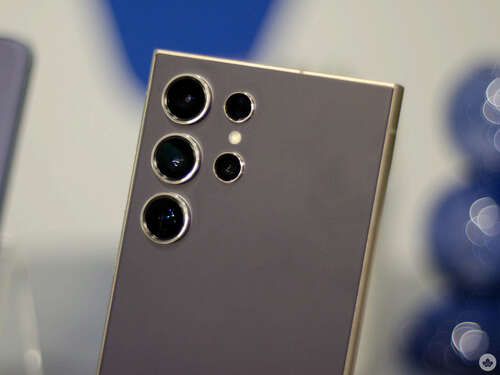 The Galaxy S24 Ultra and the Galaxy S23 Ultra have the same selfie camera, which is a 12-megapixel sensor with a f/2.2 aperture and a dual-pixel PDAF (Phase Detection autofocus).
The Galaxy S24 Ultra and the Galaxy S23 Ultra have the same selfie camera, which is a 12-megapixel sensor with a f/2.2 aperture and a dual-pixel PDAF (Phase Detection autofocus).
Quality-wise, both phones can record UHD 8K (7680 x 4320 resolution) video at 30 frames per second (fps), though the new phone falls short when it comes to recording slow-motion videos. It can capture slo-mo videos at 240fps in FHD, while the S23 Ultra can do the same at 960fps.
However, the S24 Ultra is loaded with AI-powered camera features. For example, the Galaxy S24 Ultra has an ‘Instant Slow-mo’ feature that allows the user to slow down select video parts, even if they didn’t film it in slow-mo. The feature generates additional frames based on the movements to make the slow motion even smoother and more detailed.
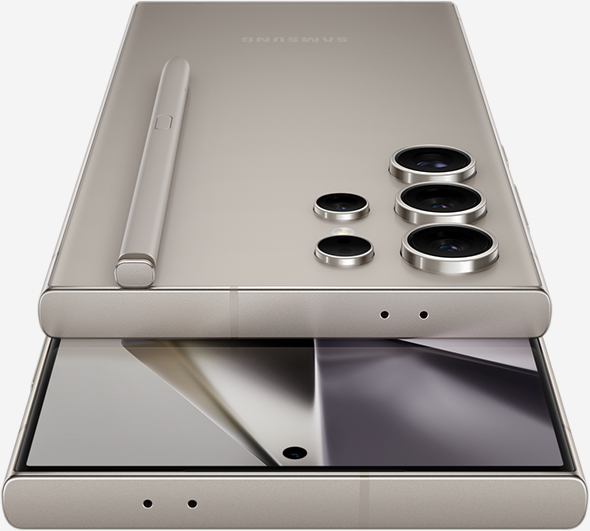
Further, the device offers several AI editing tools, like generative AI, to adjust the position of subjects, blend and fill in backgrounds, remove shadows, remaster images and more.
How much AI improves the S24’s already top-of-the-line camera is yet to be seen firsthand.
Internals and performance
The Galaxy S24 Ultra is powered by Qualcomm’s latest octa-core Snapdragon 8 Gen 3 chipset, while the S23 Ultra is powered by the Snapdragon 8 Gen 2. The new chipset, like Google’s Tensor G3, allows for a range of AI functionality alongside clock speeds of up to 3.39GHz.
At its Unpacked event, Samsung touted improvements to ray-tracing in the Galasxy S24, which, when combined with the Snapdragon 8 Gen 3 should provide a better gaming experience than the predecessor, though this too is yet to be tested by our team.
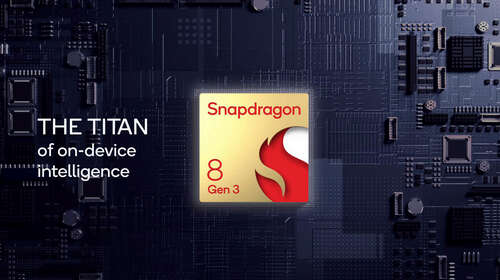 The Galaxy S24 Ultra and the S23 Ultra have the same RAM and storage options, which are 12GB/256GB, 12GB/512GB and 12GB/1TB. Unlike the S23 Ultra, the S24 Ultra doesn’t have an 8GB RAM option.
The Galaxy S24 Ultra and the S23 Ultra have the same RAM and storage options, which are 12GB/256GB, 12GB/512GB and 12GB/1TB. Unlike the S23 Ultra, the S24 Ultra doesn’t have an 8GB RAM option.
Both phones also have a fingerprint scanner under the display, an accelerometer, a gyro, a proximity sensor, a compass and a barometer.
The S24 Ultra runs on Android 14 with Samsung’s One UI 6.1 on top, while the S243 Ultra launched with Android 13, with One UI 5.1.
Both devices have the same 5,000mAh battery, and can charge up to 65 percent in roughly 30 minutes. Both devices support wireless and reverse wireless charging, and offer roughly the same playback time.
At the event, Samsung also showed off several AI features coming to the Galaxy S24 series, and one of the standout features shown off was ‘Live Translate.’ The feature doesn’t rely on any third-party apps, and works natively on the phone app to provide real-time voice and text translations.
‘Interpreter,’ on the other hand, helps users translate live conversations on a split-screen view, allowing two people speaking different languages to converse. Additionally, the feature works without cellular data or Wi-Fi. AI built into the Samsung Keyboard can also translate messages, emails and more in real-time in 13 languages.
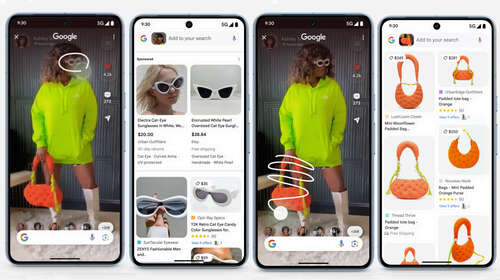 Other standout features include ‘Circle to Search,‘ which allows you to circle, highlight, scribble on or tap anything on your Galaxy S24 series smartphone’s screen to find search results for it, and an update to the Notes app allows users to generate summaries, templates for notes with pre-made formats, cover creation to make notes easy to spot and more.
Other standout features include ‘Circle to Search,‘ which allows you to circle, highlight, scribble on or tap anything on your Galaxy S24 series smartphone’s screen to find search results for it, and an update to the Notes app allows users to generate summaries, templates for notes with pre-made formats, cover creation to make notes easy to spot and more.
Colours and pricing
The new S24 Ultra is available in ‘Titanium Black,’ ‘Titanium Violet,’ ‘Titanium Grey,’ ‘Titanium Yellow,’ ‘ Titanium Blue,’ ‘Titanium Green,’ and ‘Titanium Orange’ colourways.
The S23 Ultra, upon launch, was available in ‘Phantom Black,’ ‘Cream,’ ‘Green,’ ‘Lavender,’ ‘Graphite,’ ‘Sky Blue,’ ‘Lime,’ and ‘Red.’
These are the prices for the new Galaxy S24 Ultra:
Upon release, these were the prices for the Galaxy S23 Ultra:
This time around, Samsung is charging more for the Ultra model. It’s worth noting that the S24 and the S24+ cost the same as last year’s S23 and S23+.
If you are looking for the best of the best that Android has to offer, the Galaxy S24 Ultra is the smartphone to go for. However, if you are happy with the Galaxy S23 Ultra’s features and performance and want to save some money, the S23 Ultra is still a great smartphone.
MobileSyrup utilizes affiliate partnerships. These partnerships do not influence our editorial content, though we may earn a commission on purchases made via these links, helping fund the journalism provided free on our website.
Image credits: Samsung
